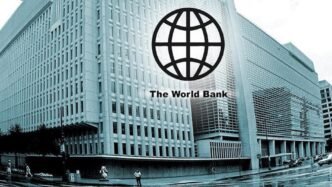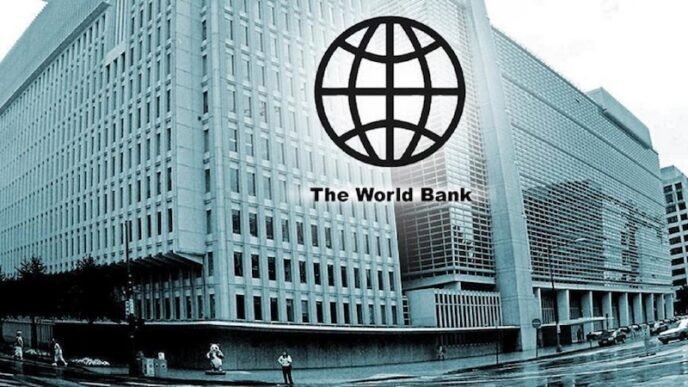The National Association of Resident Doctors (NARD) has issued a 30-day ultimatum to the Federal Government, demanding the resolution of outstanding issues affecting its members and the health sector at large. The association warned that failure to address their demands within the given period could result in a nationwide strike, a move that would further strain Nigeria’s fragile healthcare system.
The ultimatum was announced following NARD’s National Executive Council (NEC) meeting, where the doctors expressed frustration over what they described as government’s lack of seriousness in implementing previous agreements.
Key Demands
According to NARD, the demands include full payment of the Medical Residency Training Fund (MRTF), settlement of salary arrears, recruitment of more doctors to address manpower shortages, improved working conditions, and immediate implementation of all agreements signed with the government.
Speaking to journalists, NARD President, Dr. Dele Abdullahi, said:
“Our members have shown tremendous patience over the years, but it appears that the government only acts when we take drastic measures. We cannot continue to work under conditions where our welfare is ignored, agreements are abandoned, and hospitals are left in deplorable states. This ultimatum is not just about doctors; it is about the survival of Nigeria’s healthcare system.”
Dr. Abdullahi noted that many resident doctors have not received their Residency Training Fund, despite budgetary provisions, and that salary arrears remain unpaid in some states.
“We are professionals, not beggars. We only ask that the government honors its commitments. If nothing is done after 30 days, we will have no choice but to take action,” he added.
Nigeria’s Healthcare Challenges
The association highlighted the broader challenges facing the healthcare sector, pointing out that the country continues to lose its best medical professionals to brain drain. The doctor-to-patient ratio remains alarmingly poor, and the exodus of doctors has left public hospitals understaffed.
NARD Secretary-General, Dr. Margaret Uche, stressed:
“Every week, we lose dozens of doctors to migration. They leave for the UK, Canada, Saudi Arabia, and other countries because they can no longer endure the poor conditions here. Unless urgent steps are taken, our hospitals will collapse.”
Government’s Response
The Federal Government, however, appealed to the doctors to show restraint while assuring them that their concerns are being addressed.
Minister of Labour and Employment, Simon Lalong, in a statement, said:
“We acknowledge the concerns raised by NARD and assure them that government remains committed to improving the welfare of health workers. Significant progress has been made on the payment of the Residency Training Fund, and discussions are ongoing with relevant stakeholders to resolve outstanding issues. We appeal to the doctors not to take any action that could jeopardize patient care.”
Similarly, Minister of Health, Prof. Ali Pate, called for continuous dialogue, noting that industrial actions often have devastating consequences on ordinary Nigerians.
“We understand the frustrations of our doctors, but strikes are not the solution. Government is not unmindful of their sacrifices, and we are working to implement sustainable measures that will improve healthcare delivery across the country,” Prof. Pate said.
Nigerians React
Patients and civil society groups have reacted with concern, urging both parties to avoid a repeat of previous nationwide strikes.
Mrs. Ifeoma Eze, whose husband is currently undergoing treatment for kidney disease at the National Hospital, Abuja, said:
“We beg the doctors and the government to resolve this quickly. A strike will kill patients like my husband who cannot afford private hospitals. We are at their mercy.”
Health experts also warn that repeated strikes are driving more Nigerians to seek treatment abroad, further weakening confidence in the country’s healthcare system.
The Way Forward
Observers suggest that for a lasting solution, the government must prioritize healthcare in budgetary allocations, fulfill agreements without delay, and invest in infrastructure that makes hospitals functional. They also argue that doctors’ welfare must be given urgent attention to stem the tide of migration.
NARD, on its part, maintains that it will continue to push for reforms until the system improves.
Dr. Abdullahi emphasized in his closing remarks:
“We cannot in good conscience keep quiet while our hospitals rot away. Our ultimatum is a call to action, not just for government but for all Nigerians who deserve better healthcare.”
Conclusion
As the 30-day deadline begins to tick, Nigerians are watching closely to see if the government will meet the doctors’ demands or risk another crippling strike. What is certain is that unless urgent steps are taken, the cycle of ultimatums and industrial actions will persist, leaving patients to bear the brunt of a broken system.














